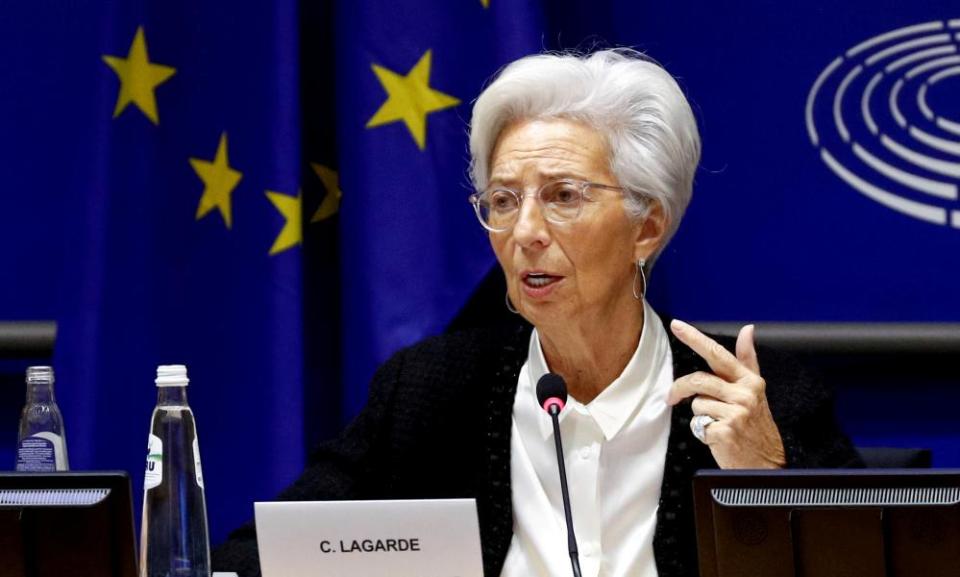Inflation in eurozone soars to 4.9% – highest since euro was introduced

Inflation across the 19-member eurozone soared to 4.9% in November, outstripping City forecasts and putting pressure on the European Central Bank to review its policy of ultra-low interest rates.
With some investors reacting to the news by accusing the ECB of allowing inflation to run out of control, the European statistics agency Eurostat said its early flash reading of inflation in November had reached the highest level since relevant records began in 1997, two years before the euro was launched.
High gas prices and the cost of imported goods were blamed for the inflationary surge. Energy prices, including oil and gas, jumped 27% from November 2020, Eurostat said, to increase the headline rate from 4.1% in October.
France suffered a 3.4% inflation increase, its highest in a decade, but it was in Germany among the bloc’s largest economies where prices rocketed, taking the inflation rate to 6%. In Estonia, the inflation rate jumped 8.4%, while in Lithuania it reached 9.3%.
Other developed economies have also been buffeted by similar inflationary pressures since the summer. The US recorded an inflation rate of 6.2% in October, the biggest 12-month jump since 1990, while annual prices increased over the same period by an average 4.2% in the UK.
On Wednesday, the British Retail Consortium said overall shop prices increased in November at their fastest pace since May 2019. The BRC-NielsenIQ shop price index said the 0.4% jump, after a drop in October of 0.3%, was in response to rising food prices and the slowing of non-food deflation.
The BRC figure is based on the prices of a range of 500 food and non-food items in shops, hence why it differs from the consumer prices index used by the Office for National Statistics, which also takes in the costs of transport, utility bills and eating out.
Charles Hepworth, investment director at GAM Investments, said the eurozone’s jump above the average 4.5% forecast by City economists “continues to point to the impossibly incongruent argument from central bankers that this cost push inflation is transient”.
Until now, like most central bank governors, the ECB’s Christine Lagarde has insisted that inflationary pressures would prove to be temporary and would probably begin to wane in 2022.
Hepworth said this position would come under strain, despite the emergence of the Omicron variant of Covid-19 and its potential to negatively affect the recovery from the pandemic.
“It may be wishful thinking on the part of Lagarde when she declares that price pressures won’t run out of control – they already are and it’s difficult to follow the argument that it will abate soon,” he said.
The eurozone’s core inflation rate, which strips out potentially volatile items such as alcohol, energy, food and tobacco, also spiked higher in November to an annual rate of 2.6% from 2%.
Some analysts said the strength of rising core prices above the ECB’s 2% target showed the headline inflation rate was already having secondary effects through higher wage demands.
However, ECB officials are expected to take a more cautious view, holding back from announcing any big policy changes while tests are carried out on the effects of Omicron.
Related: How world’s major economies are dealing with spectre of inflation
Were the variant to start affecting growth levels, then prices such as oil would probably drift lower, easing inflation rates worldwide.
Jack Allen-Reynolds, senior Europe economist at Capital Economics, said: “The Omicron variant has increased the level of uncertainty even further, but for now, we suspect that it will have a fairly small impact on inflation.”

 Yahoo Finance
Yahoo Finance 